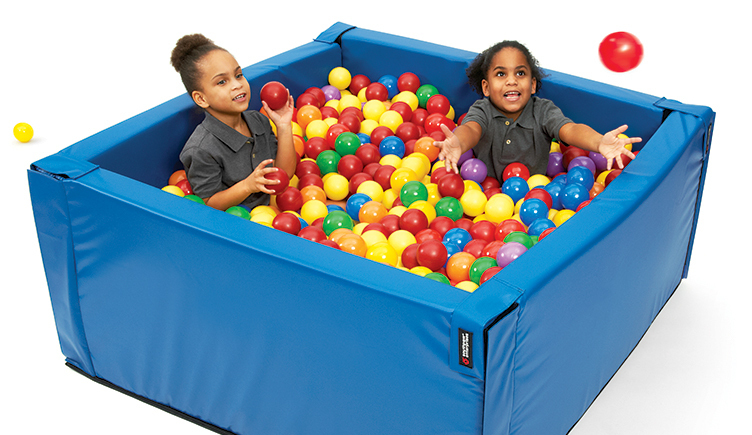Did you know that the Department of Education’s Office of Civil Rights under the Obama administration published a guidance document for schools to “spell out” the rights of students with disabilities to participate in school-based extracurricular activities with a focus on sports? According to Seth Galanter, the Acting Assistant Secretary for the Education Department Office of Civil Rights at the time, school-based sports activities must provide “reasonable accommodations” to games as long as they don’t make “fundamental alterations” that would give the student an unfair advantage.
Not only focusing on sports, the Individuals with Disabilities Education Act mandates that “each child with a disability participates with nondisabled children in those extracurricular services and activities to the maximum extent appropriate to the need of that child,” along with any “supplementary aids and services” appropriate for participation in school-based activities. The Individualized Education Team will work together to make the determinations of what is appropriate and necessary for participation.
Benefits
While many students with special needs are expected to spend a great deal of time working on making improvements in areas of weakness, extracurricular activities are a time to focus on talents, strengths and having fun. And let’s not forget that making friends when you’re using a lot of concentration to focus on those challenging school activities can be difficult, so by changing settings and task demands, your child may develop an enjoyable set of friends. Other important lessons in addition to making friends may include teamwork, sportsmanship/encouraging others, following rules, and that it’s okay to try new things. And, with childhood obesity on the rise, many extracurricular activities provide a valuable opportunity to turn off the television and get off the couch. Some of these extracurricular activities may translate to hobbies, interests or even jobs in adulthood.
Balance
Consider your child’s school commute, homework and other therapies when signing up for an activity. Does your child have downtime to relax or decompress, or does your child thrive on every minute being scheduled? Your child may enjoy a weekend or summer activity when other demands on his time are less. A child who is over-tired won’t reap the benefits from any activity in which she is participating. Not only that, but a parent who is constantly running for school and activities will find it difficult to succeed in parenting, household tasks and work.
Selecting an activity
Are there activities in which your child has an interest in or a natural talent? Discussing your child’s strengths or inclinations with his teacher or therapist may help brainstorm some ideas, then include your child in the discussion at the appropriate time. Research your options for school-based activities, “special needs” based programs, parks and recreation lineups, and private offerings.
What sensory and structure needs does your child have? Talk with the staff at the various options, tour their facility, and/or observe a session to see whether appropriate accommodations can be made. Would your child fare well in competition with others, or would he be happier in competition with himself? Along with these other considerations, investigate how long each session/competition/game lasts, along with how many weeks that meetings or the season lasts. Some activities allow students to attend a trial session for free. If the staff are comfortable, you could act as your child’s assistant or shadow during the activity, and fade support as able or no longer needed.
Possibilities to consider
- Sports often offer various levels, from skills development to more seasoned team play. Sometimes the local parks and recreation departments will offer an exploratory program in which students can participate in various sports to see which might be enjoyable. The American Association of Adapted Sports Programs may be a valuable resource as well.
- School-based clubs can range over a huge variety of interests. A computer-savvy student may enjoy editing photos on the computer for photography club. Your child may shine in drama club, learn about gardening and horticulture in the Future Farmers of America, or contribute to the school newspaper.
- Joining an organization such as scouting, the YMCA or 4-H may provide a student with a structured environment in which to work toward a goal or merit badge.
- Therapeutic activity programs often partner with an occupational, physical and/or speech therapist to provide adapted services considering the child’s skills and needs. Hippotherapy (Therapeutic Horseback Riding) is the most common offering, but some areas offer dance programs, music therapy and art/painting programs.
- Summer or winter break camps may provide a short-term opportunity to learn an activity, along with developing some independence in activities of daily living skills.
- Volunteer work may be a great self-esteem booster to help others. This is also an opportunity to earn hours if school requires them, and to learn about possible careers. Investigate opportunities available at your local house of worship, animal shelters, hospitals, nursing facilities, libraries or service organizations. You may be able to attend a one-time session to determine if your child likes it before a longer-term commitment. If the opportunities that are already available are not appropriate, they might give you ideas for something that is better fitting, such as contributing to the newsletter.
- Special Interest clubs aren’t limited to those that are school-based. Your local library or shop where you purchase related supplies may either offer these clubs or have resource sheets of places that do. These clubs vary over a huge range from audio visual clubs to various games, knitting or mathematics, to name a few.
Finding the right venue for your child to shine may be a long journey, but some research and ingenuity can go a long way. Discussing opportunities with your child’s team may generate some surprising solutions. Once your child has started an activity, team members, such as an occupational therapist, may offer suggestions for adapting portions of the activity to your child’s abilities.
Janna Stup Barrick, M.S., OTR/L is a pediatric occupational therapist at Amber Hill Frederick Pediatric Therapy, www.amberhillpt.com.



